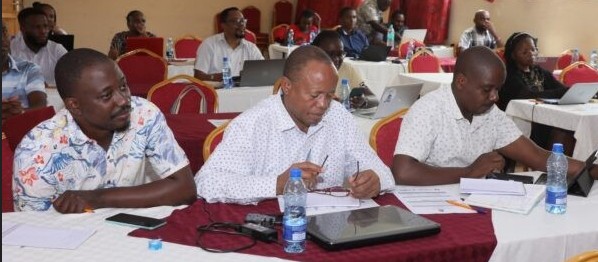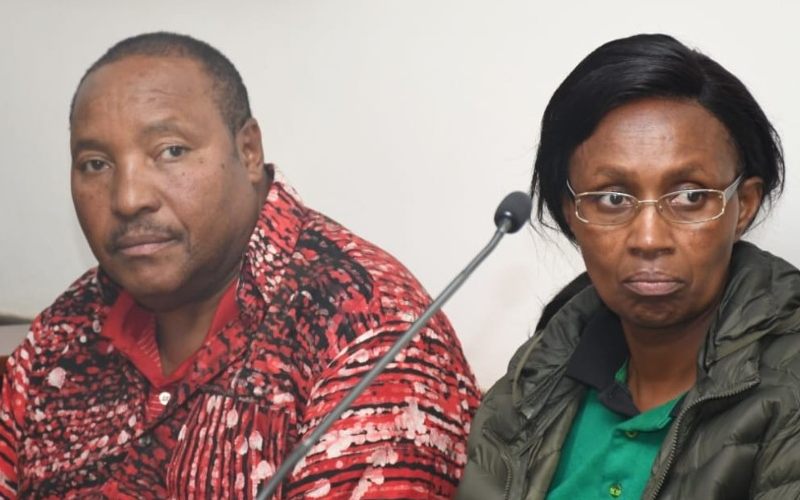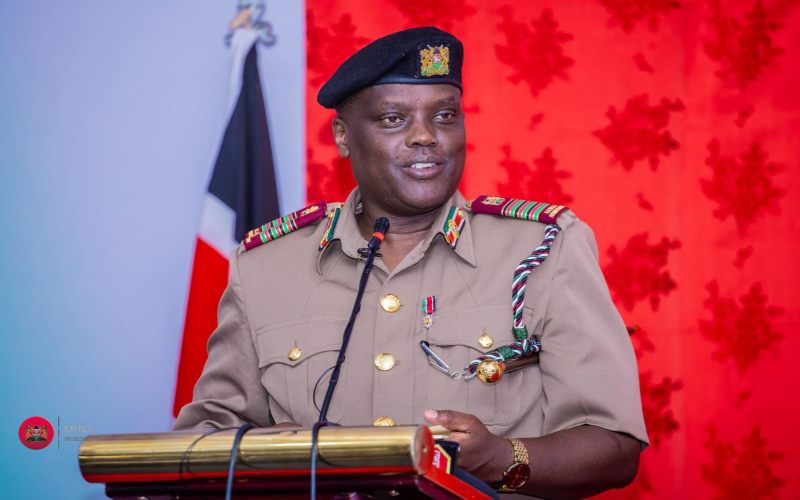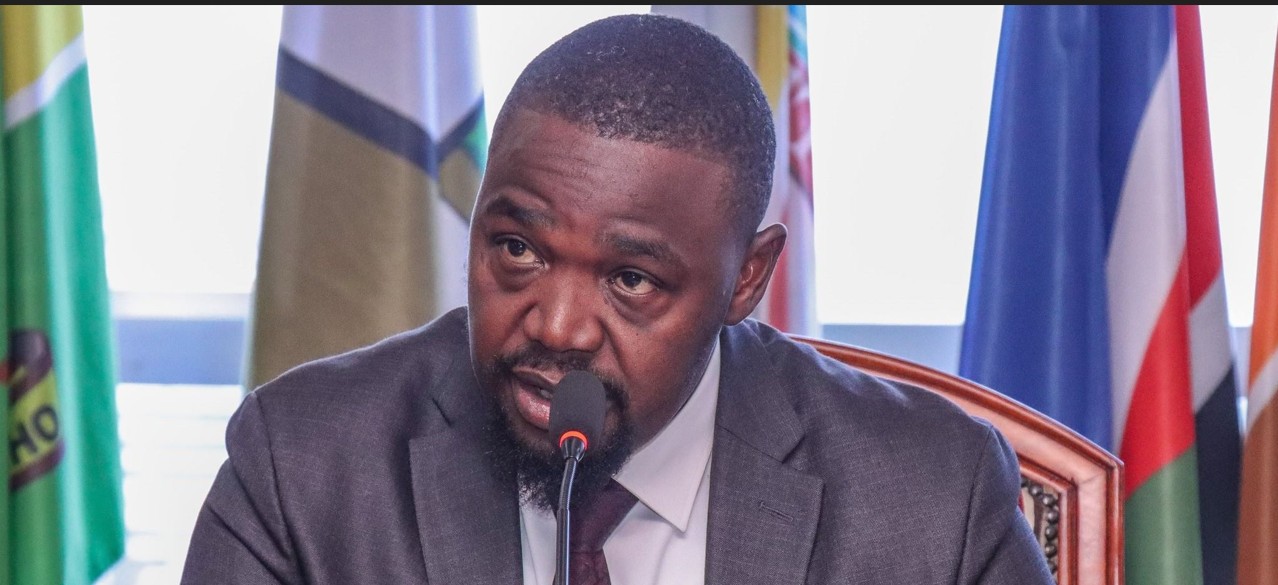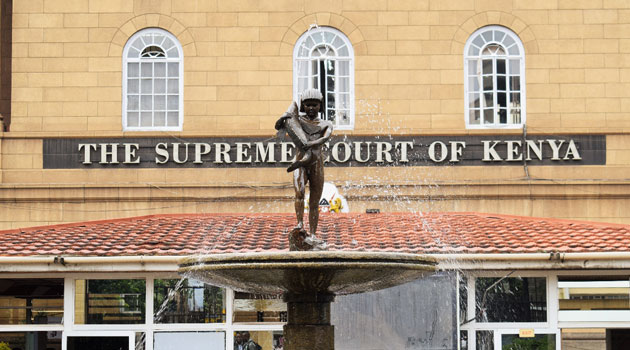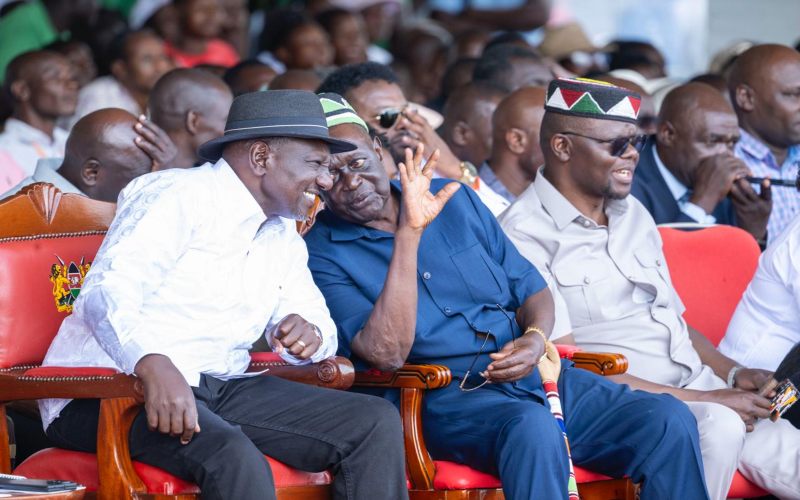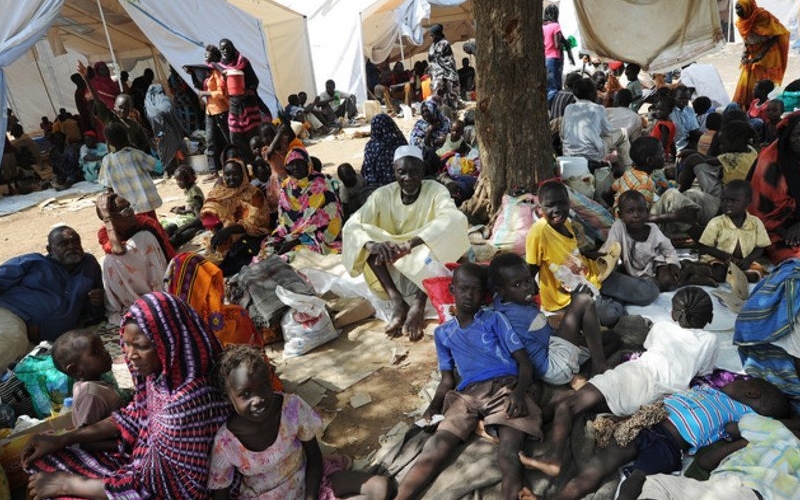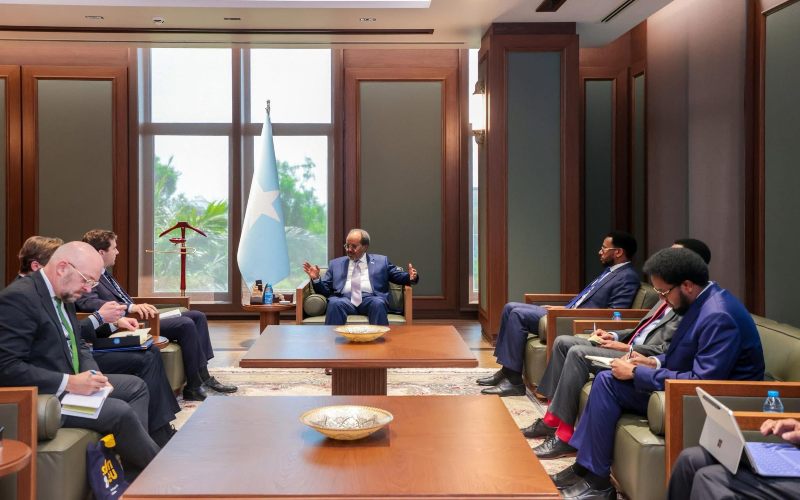Muslims across the country celebrate Eid-ul-Fitr to mark end of Ramadan
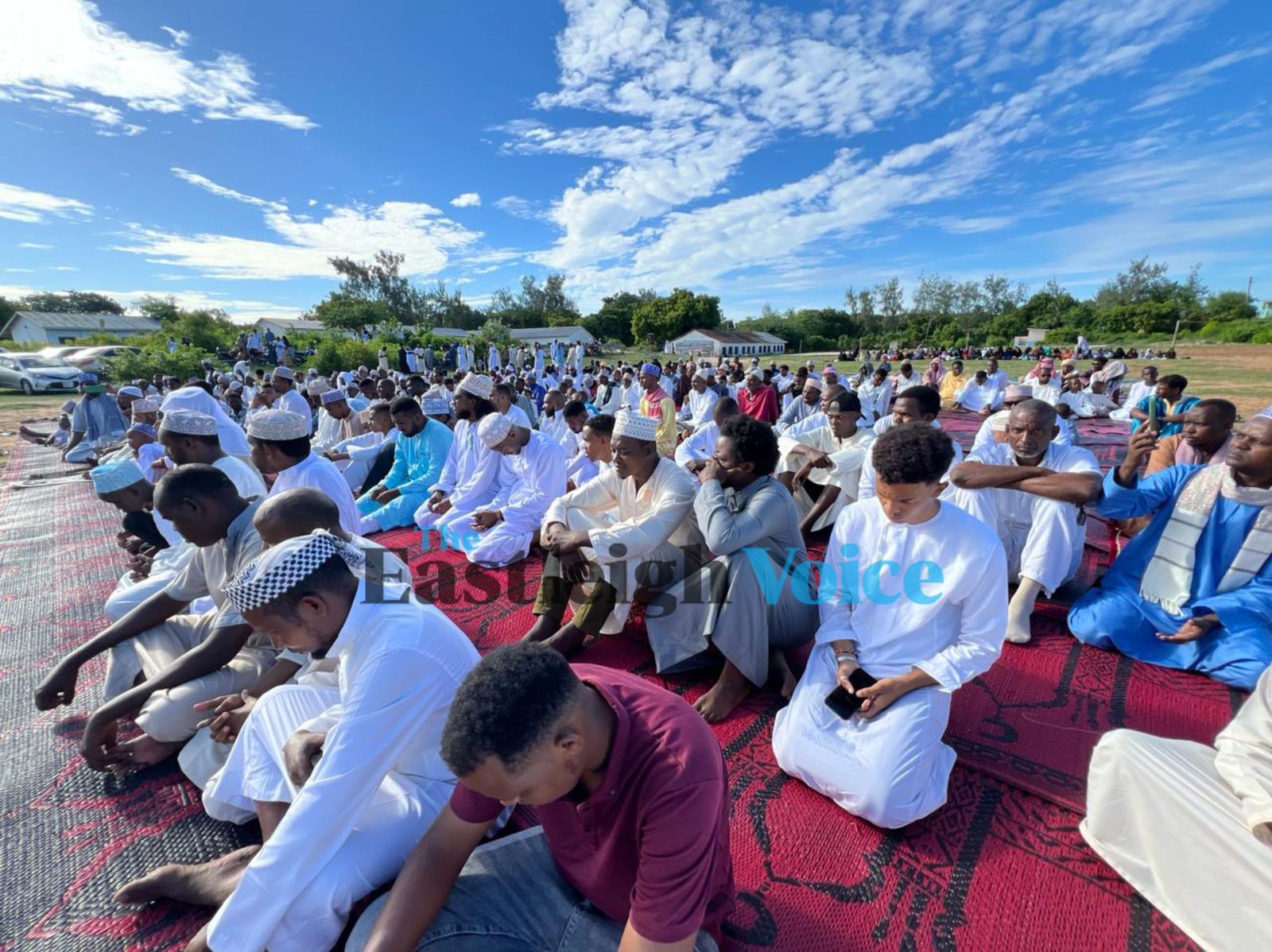
The faithful began the day with a prayer service, followed by a short sermon as they marked the time of joy and celebration with family and friends.
On Wednesday, thousands of Muslims performed special Eid-ul-Fitr prayers on beaches along the coast, as well as on open grounds and in community halls, as mosques filled up quickly.
Eid, the festival of breaking the fast, signifies the end of Ramadan, the ninth month in the Islamic calendar, which involves abstinence, prayers, and spiritual cleansing. This year, it commenced on March 11.
More To Read
- Basbousa: The classic cake bringing families together
- From desert to dessert: The journey of dates to Kenyan tables
- Eastleigh residents find unity, joy in Eid-ul-Adha celebrations amidst harsh economic times
- Muslims in Eastleigh, rest of Kenya observe the Day of Arafah through fasting
- Kenyan Muslim organisations launch Sh5.4 million Udhiyah programme for Gaza amid deepening humanitarian crisis
- Interior CS Murkomen declares Friday public holiday to mark Eid-ul-Adha
For the Eid celebration, the government declared Wednesday a public holiday.
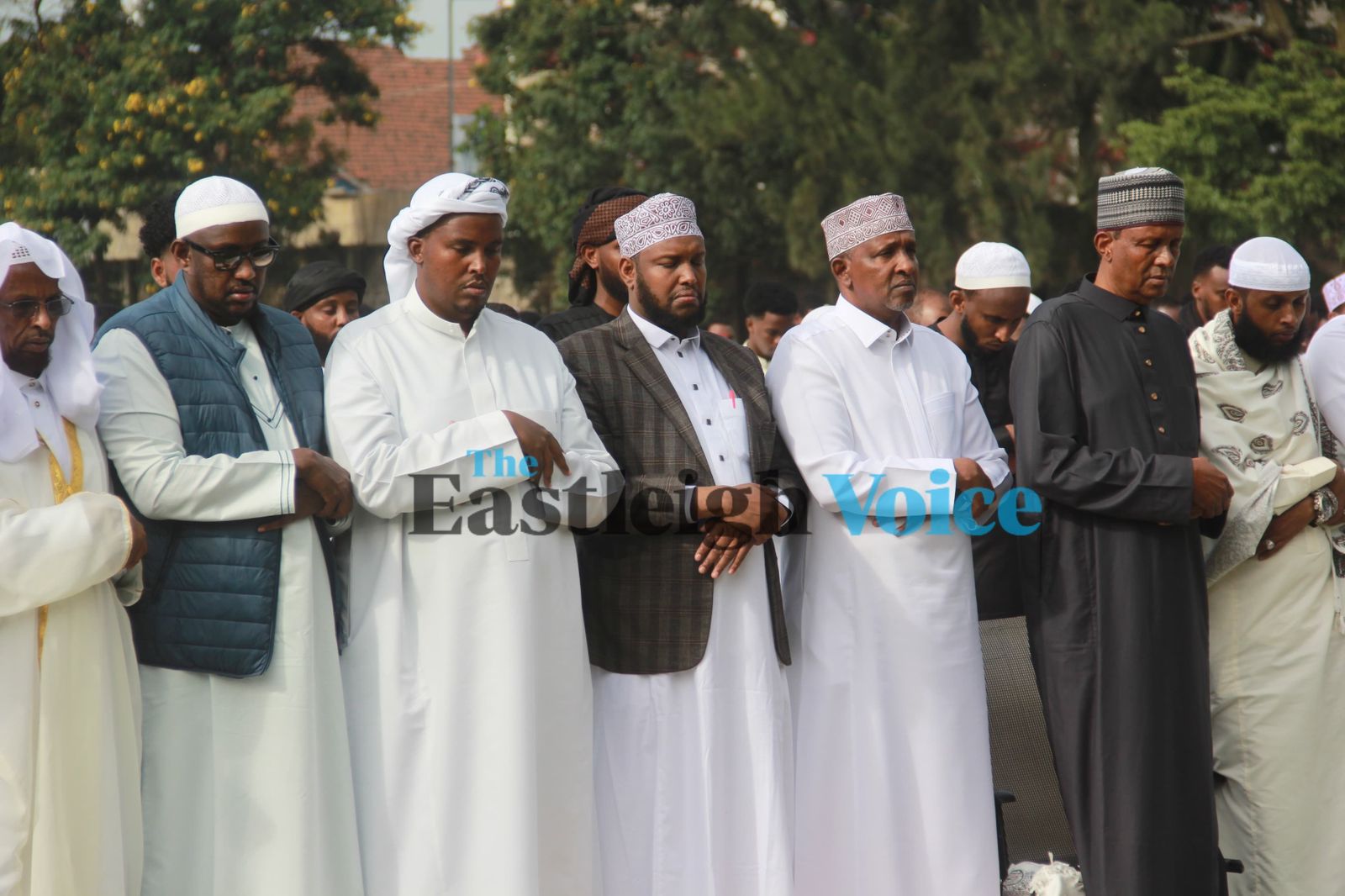 Defence CS Aden Duale, Kamukunji MP Yusuf Hassan, and other leaders join Muslims in Eastleigh to mark Eid-ul Fitr at Eastleigh High School on April 10, 2024. (Photo: Abdirahman Khalif/EV)
Defence CS Aden Duale, Kamukunji MP Yusuf Hassan, and other leaders join Muslims in Eastleigh to mark Eid-ul Fitr at Eastleigh High School on April 10, 2024. (Photo: Abdirahman Khalif/EV)
In Nairobi, Eid prayers were held at various locations, including the Sir Ali Muslim Club, Lang'ata Primary School, and the Jamia Mosque in the central business district.
In Eastleigh, prayers took place at venues such as Eastleigh High School, the BBS Mall, Maina Wanjigi Secondary School, and Zawadi Primary School.
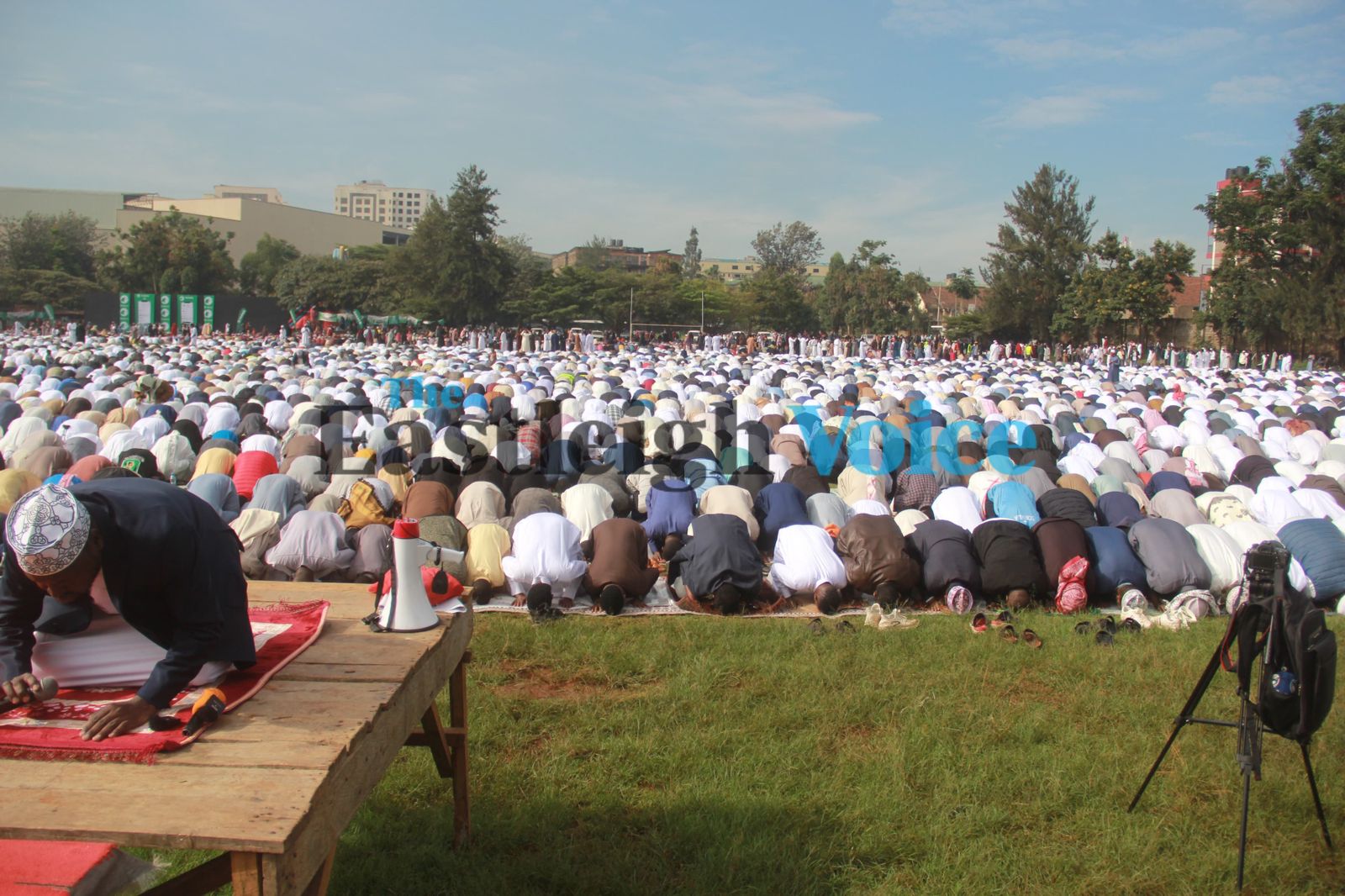 Muslims in Eastleigh, Nairobi, mark Eid-ul Fitr at Eastleigh High School on April 10, 2024. (Photo: Abdirahman Khalif/EV)
Muslims in Eastleigh, Nairobi, mark Eid-ul Fitr at Eastleigh High School on April 10, 2024. (Photo: Abdirahman Khalif/EV)
A unique celebration in coastal counties sees Muslims show up for Eid prayers on the beaches and other open grounds as the mosques fill p quickly.
Sheikh Muhamad Kassim of Kwale County says beach prayers have become a tradition among residents of Diani, which is known for its beautiful beaches that usually draw many local and international tourists.
“It is rare to find Muslims in this part performing Eid prayers in mosques. A good example is the Kongo Mosque area in Diani. The mosque cannot accommodate a huge crowd so we usually go to the Kongo Beach open area and perform our Eid prayers,” Muhamad said.
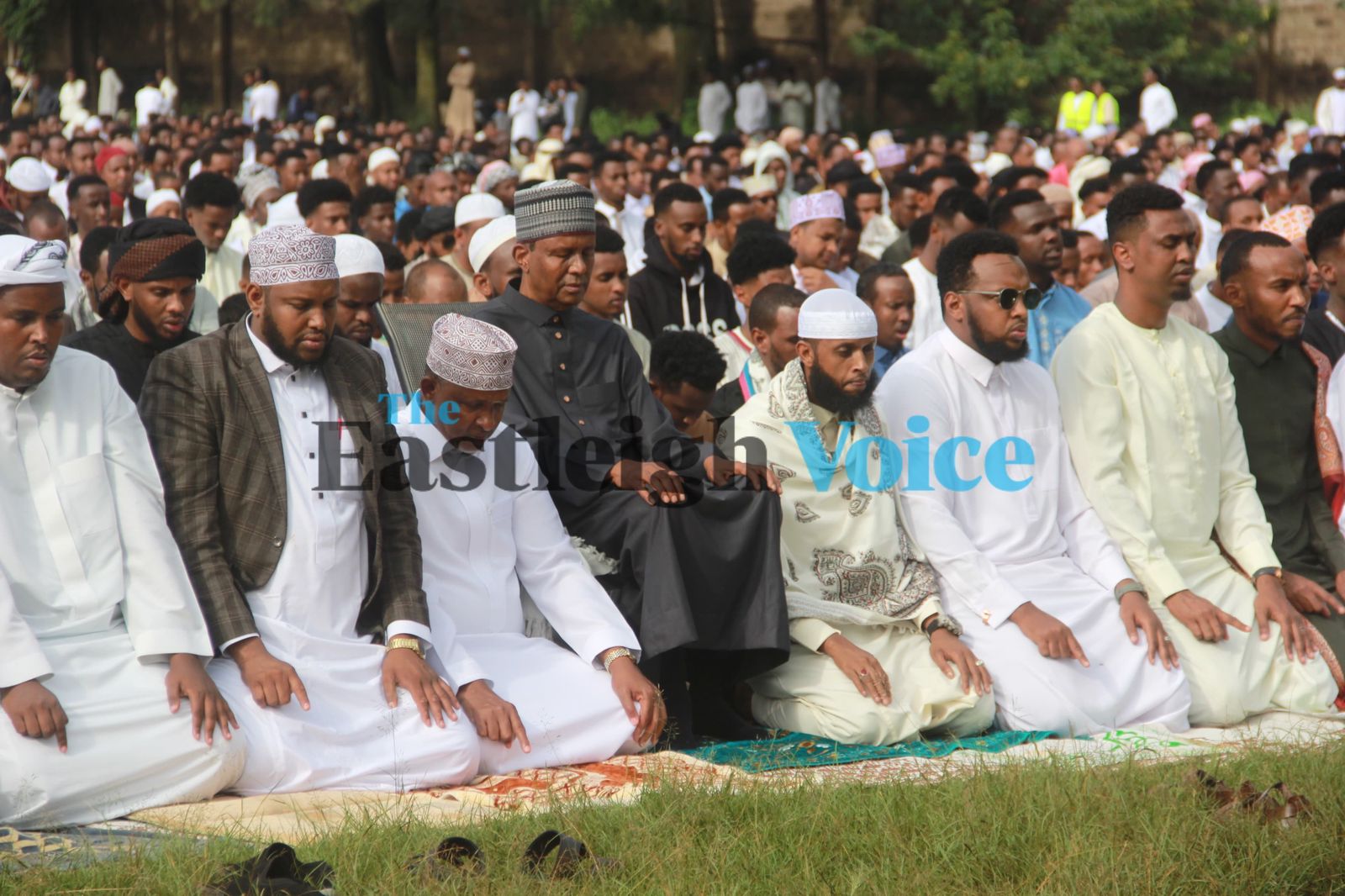 Defence CS Aden Duale, Kamukunji MP Yusuf Hassan, and other leaders join Muslims in Eastleigh to mark Eid-ul Fitr at Eastleigh High School on April 10, 2024. (Photo: Abdirahman Khalif/EV)
Defence CS Aden Duale, Kamukunji MP Yusuf Hassan, and other leaders join Muslims in Eastleigh to mark Eid-ul Fitr at Eastleigh High School on April 10, 2024. (Photo: Abdirahman Khalif/EV)
In the coastal city of Mombasa, Eid prayers were held at Tononoka Grounds and historical locations such as the Ronald Ngala, Tononoka, Serani and Bilima grounds.
“It has been a tradition for Eid prayers to be conducted on open grounds. We wake up early to find suitable spaces to listen to sermons because other areas get filled," said Abdulkadir Tawfiq, a Mombasa resident.
"I love the Eid spirit because on this occasion people spread peace, love and unity amongst each other," Abdulkadir added, helping to paint the picture of an atmosphere filled with excitement, chatter and the gathering of friends and family.
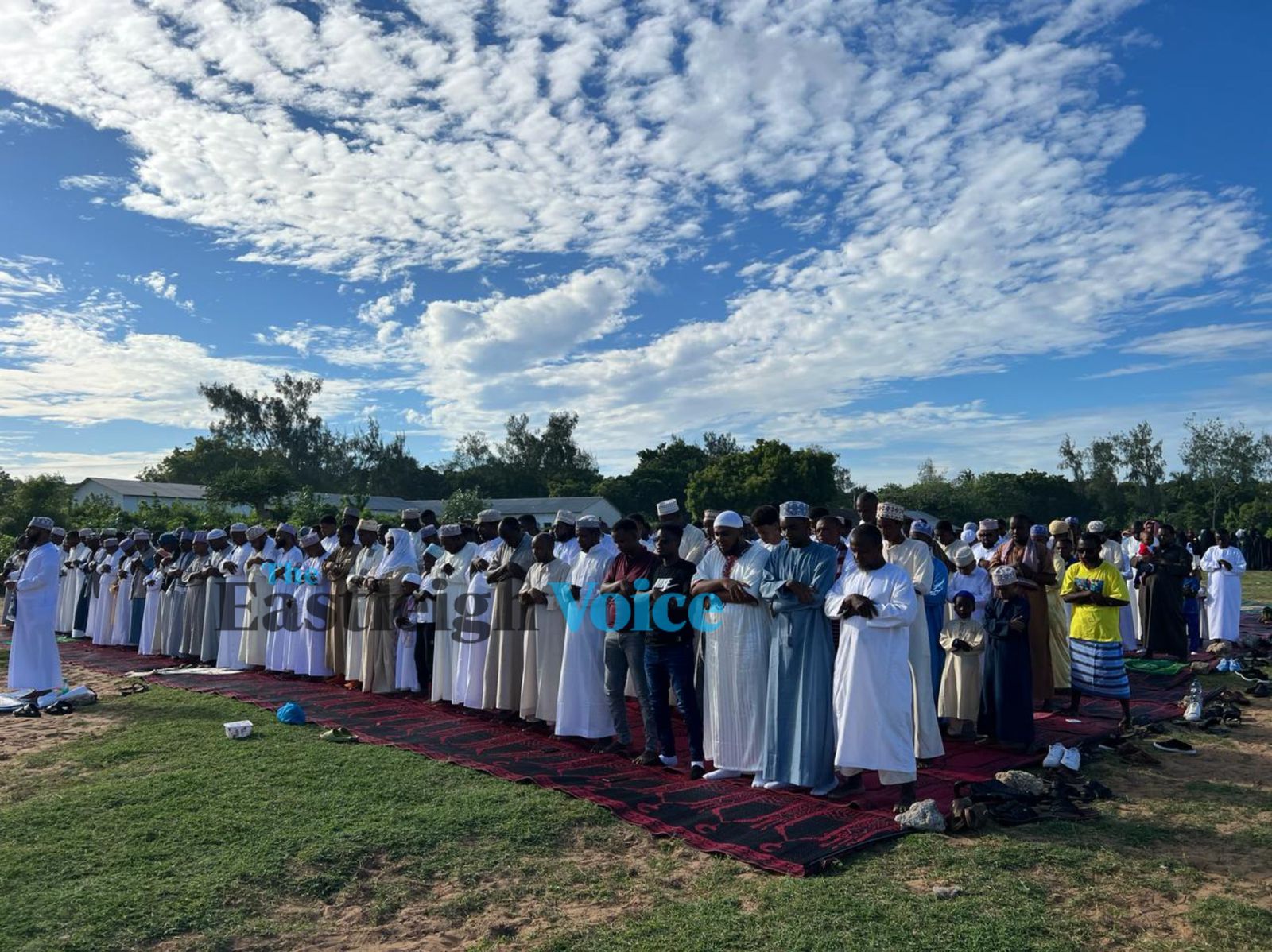 Muslims conduct Eid prayers at the Watamu Primary Grounds in Kilifi County on April 10, 2024. (Photo: Farhiya Hussein)
Muslims conduct Eid prayers at the Watamu Primary Grounds in Kilifi County on April 10, 2024. (Photo: Farhiya Hussein)
Abdulkadir also said it is a tradition for him, and others, to carry sweets and dates, which they distribute to fellow Muslims during the prayers.
“If you are from Mombasa, there is something children call Mkono wa Eid, which sees them ask for anything from adults. This is why it is a tradition for me to distribute sweets at the Eid prayers,” he said.
 Muslims conducting Eid prayers at the Watamu Primary Grounds in Kilifi County on April 10, 2024. (Photo: Farhiya Hussein)
Muslims conducting Eid prayers at the Watamu Primary Grounds in Kilifi County on April 10, 2024. (Photo: Farhiya Hussein)
In Malindi, Kilifi County, the Sir Ali and Watamu Primary School grounds witnessed huge congregations.
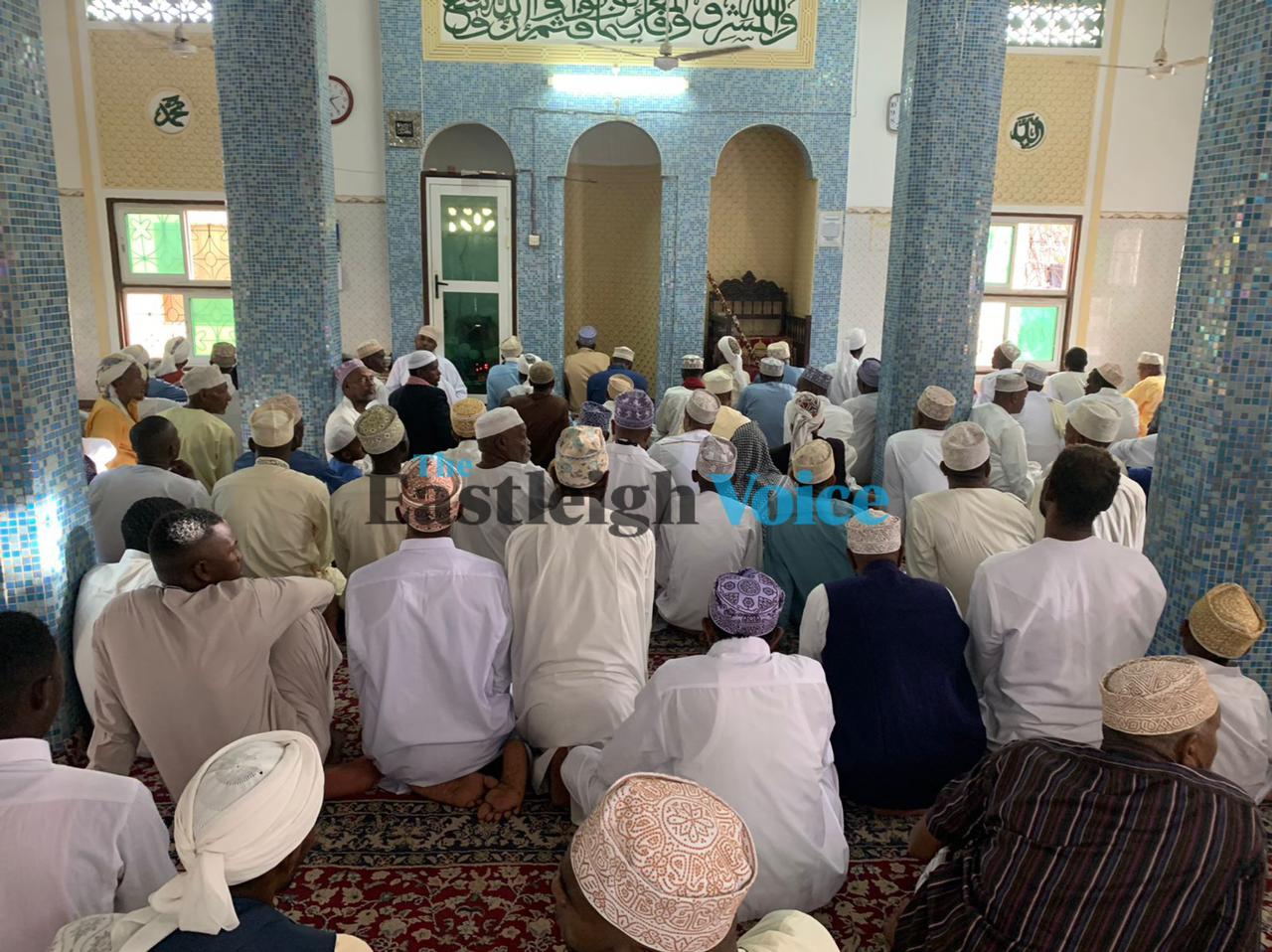 Muslims in Lamu, mark Eid-Ul-Fitr prayers at Taneem Mosque on April 10, 2024. (Photo: Issa Hussein/EV)
Muslims in Lamu, mark Eid-Ul-Fitr prayers at Taneem Mosque on April 10, 2024. (Photo: Issa Hussein/EV)
In Garissa town, Eid prayers were held at locations including the General Mohamud Grounds, while in Mandera, faithful gathered at the Jamia Mosque grounds.
In Wajir, the prayers took place at venues including Orahey grounds.
Across the country, prayers are confined to mosques and other closed spaces in cases of bad weather.
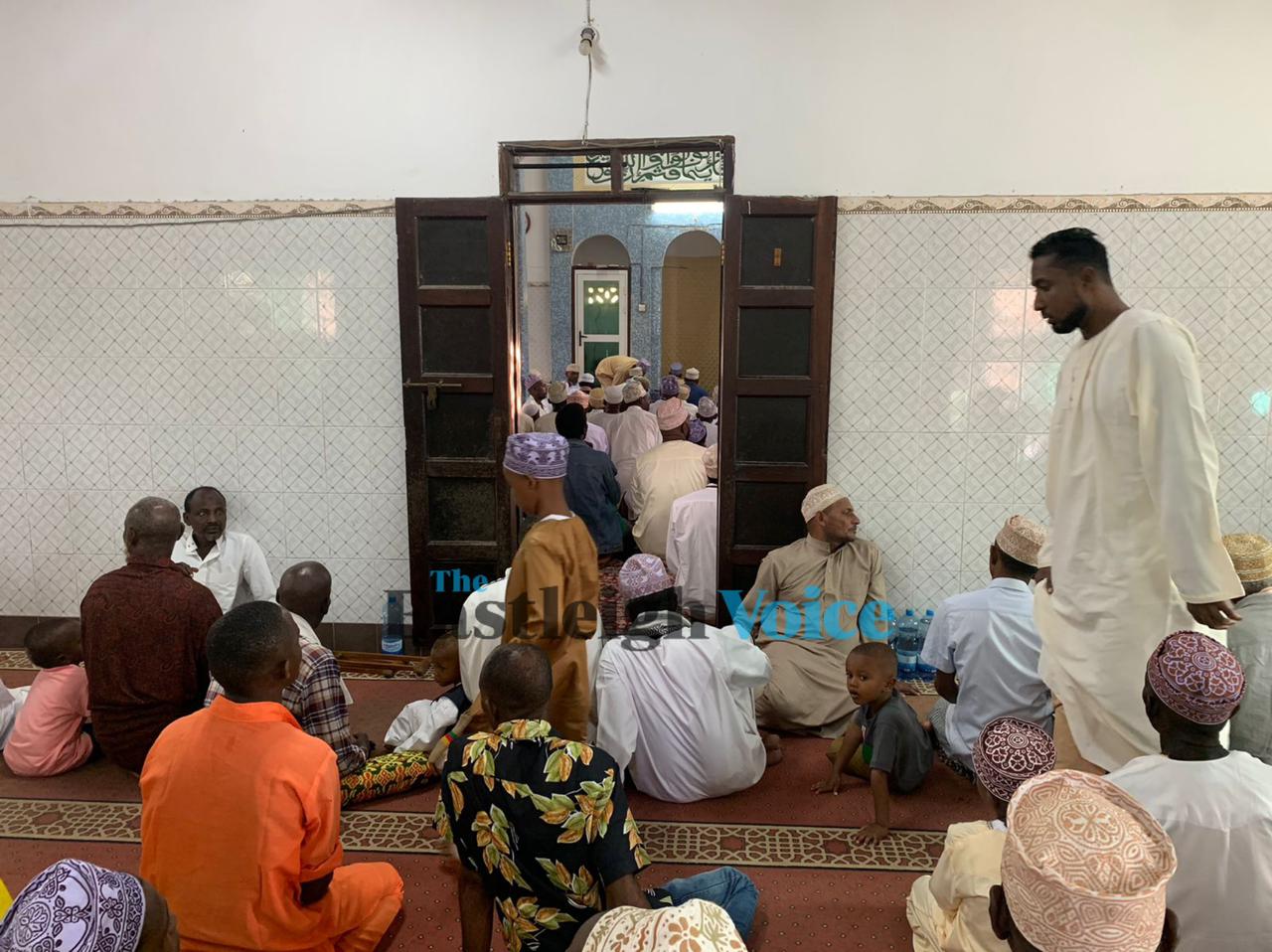 Muslims in Lamu, mark Eid-Ul-Fitr prayers at Taneem Mosque on April 10, 2024. (Photo: Issa Hussein/EV)
Muslims in Lamu, mark Eid-Ul-Fitr prayers at Taneem Mosque on April 10, 2024. (Photo: Issa Hussein/EV)
During Ramadan, Muslims worldwide fast from dawn to dusk and engage in religious practices like Quran recitation, prayers, and charity, experiencing profound spiritual rejuvenation.
 Muslims in Lamu, mark Eid-Ul-Fitr prayers at Taneem Mosque on April 10, 2024. (Photo: Issa Hussein/EV)
Muslims in Lamu, mark Eid-Ul-Fitr prayers at Taneem Mosque on April 10, 2024. (Photo: Issa Hussein/EV)
Eid is a joyous occasion for Muslims worldwide to reflect on their spiritual growth and express gratitude for the blessings they have received.
It begins with the sighting of the new moon, followed by a special congregational prayer called Salat al-Eid.
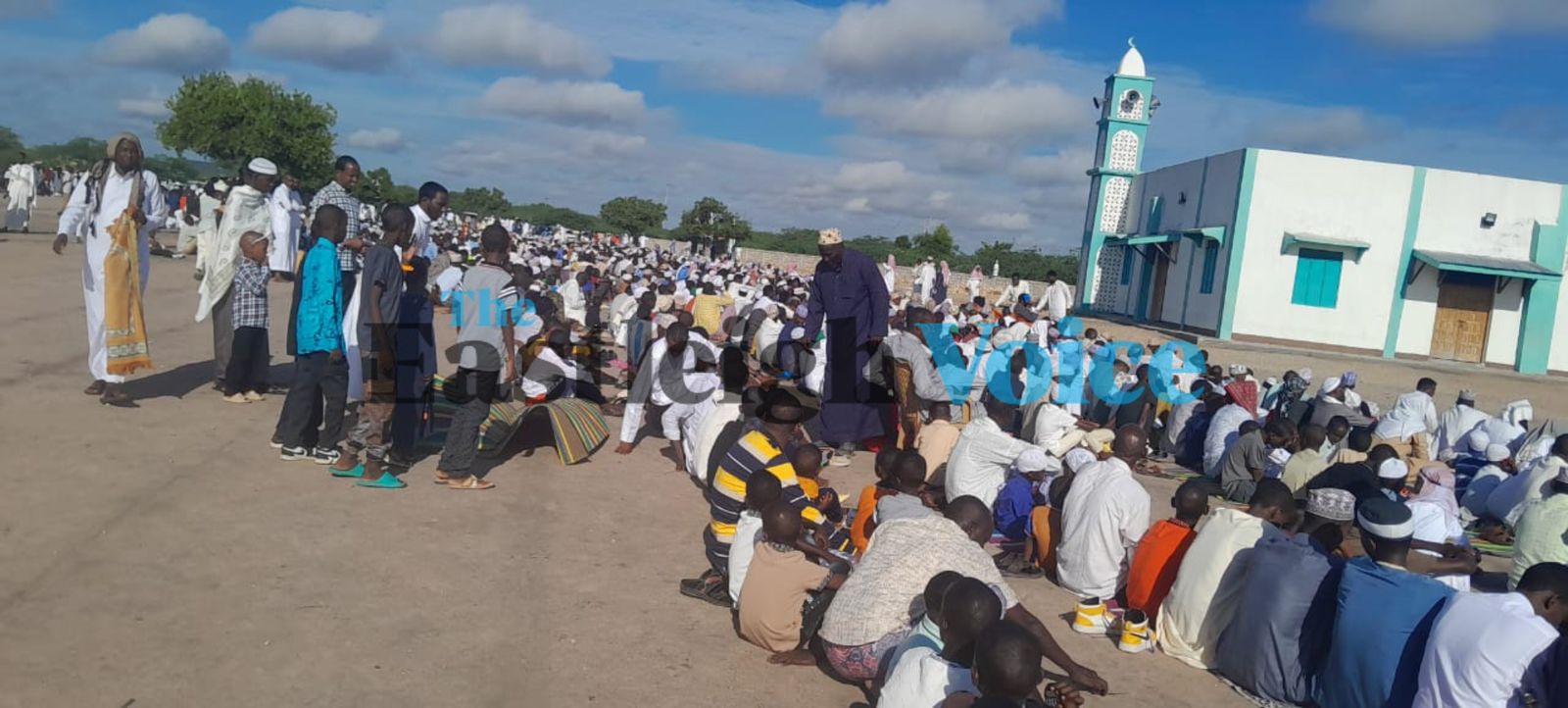 Muslims faithful gather at Masalani Eid grounds in Garissa County for prayers ahead of the Eid-ul-Fitr celebrations on April 10, 2024. (Photo: Abdimalik Hajir/EV)
Muslims faithful gather at Masalani Eid grounds in Garissa County for prayers ahead of the Eid-ul-Fitr celebrations on April 10, 2024. (Photo: Abdimalik Hajir/EV)
Muslims start Eid with a prayer service, followed by a short sermon, and then hold celebrations marked by the exchange of Eid greetings such as "Eid Mubarak" (Blessed Eid) or "Eid sa'id" (Happy Eid).
In the morning, children don new clothes and are showered with gifts and money, adding to the excitement of the day.
 Muslim faithful gather at Masalani Eid grounds in Garissa County for prayers ahead of the Eid-ul-Fitr celebrations on April 10, 2024. (Photo: Abdimalik Hajir/EV)
Muslim faithful gather at Masalani Eid grounds in Garissa County for prayers ahead of the Eid-ul-Fitr celebrations on April 10, 2024. (Photo: Abdimalik Hajir/EV)
Before heading for prayers, faithful fulfil their religious obligations by paying zakat, the charitable contribution to support the less fortunate.
And with the call of "Allahu Akbar" echoing from the streets, they gather in open spaces to perform the Eid prayer, showcasing pivotal moments of unity and spirituality.
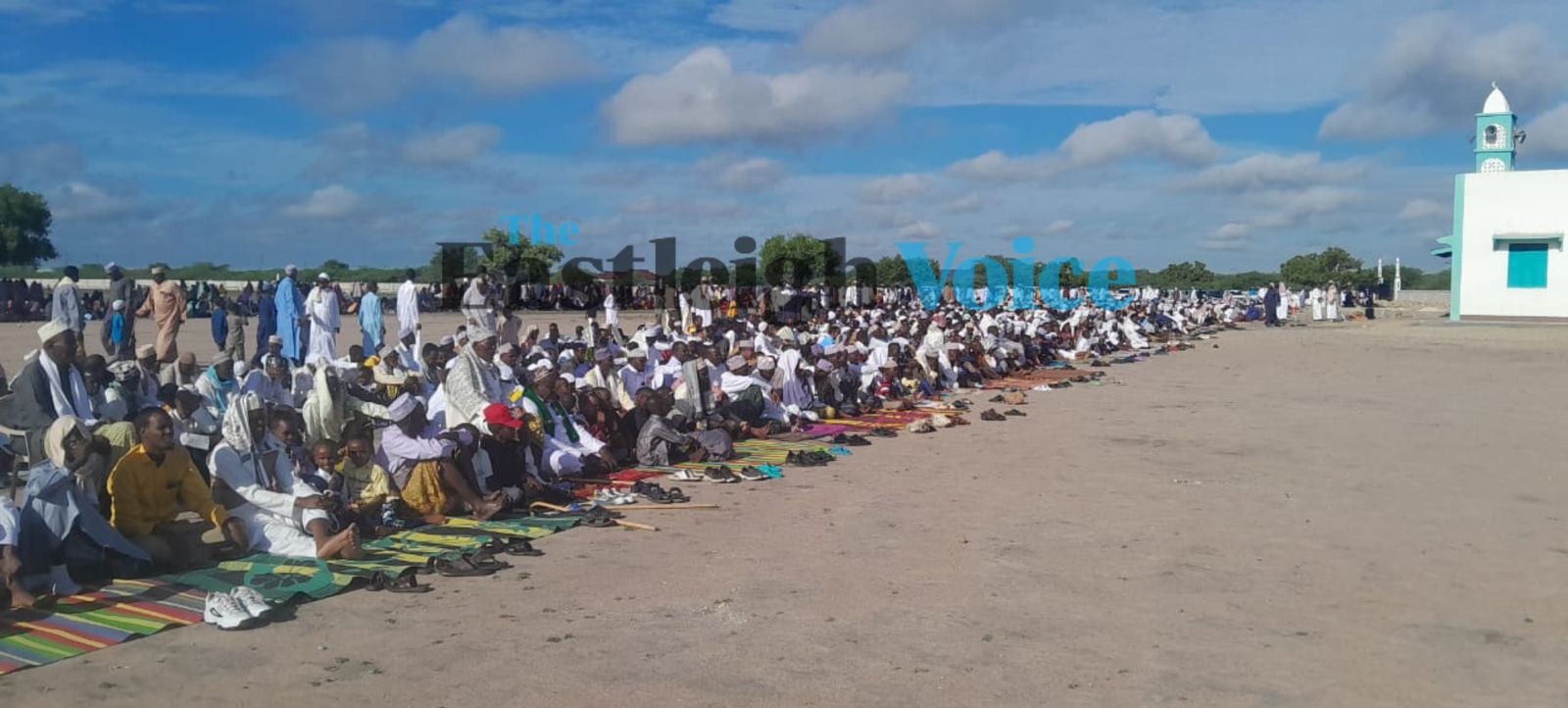 Muslim faithful gather at Masalani Eid grounds in Garissa County for prayers ahead of the Eid-ul-Fitr celebrations on April 10, 2024. (Photo: Abdimalik Hajir/EV)
Muslim faithful gather at Masalani Eid grounds in Garissa County for prayers ahead of the Eid-ul-Fitr celebrations on April 10, 2024. (Photo: Abdimalik Hajir/EV)
Reciting takbeerat and praising God with the words "Allahu Akbar," Muslims also express gratitude for the blessings of Ramadan and rejoice in the spirit of community and faith.
Religious leaders, on the other hand, leverage Eid celebrations to encourage believers to embrace peace, unity, and harmonious coexistence with fellow Kenyans from diverse religious backgrounds.
 Muslims faithful gather for Eid prayers at Isiolo Islamic Institute Mosque in Tuluroba on April 10, 2024. (Photo: Waweru Wairimu)
Muslims faithful gather for Eid prayers at Isiolo Islamic Institute Mosque in Tuluroba on April 10, 2024. (Photo: Waweru Wairimu)
As per Islamic culture, Muslims celebrate two annual festivals: Eid-al-Fitr, which follows Ramadan, and Eid-al-Adha, during the month of Hajj, the pilgrimage to Mecca, Saudi Arabia.
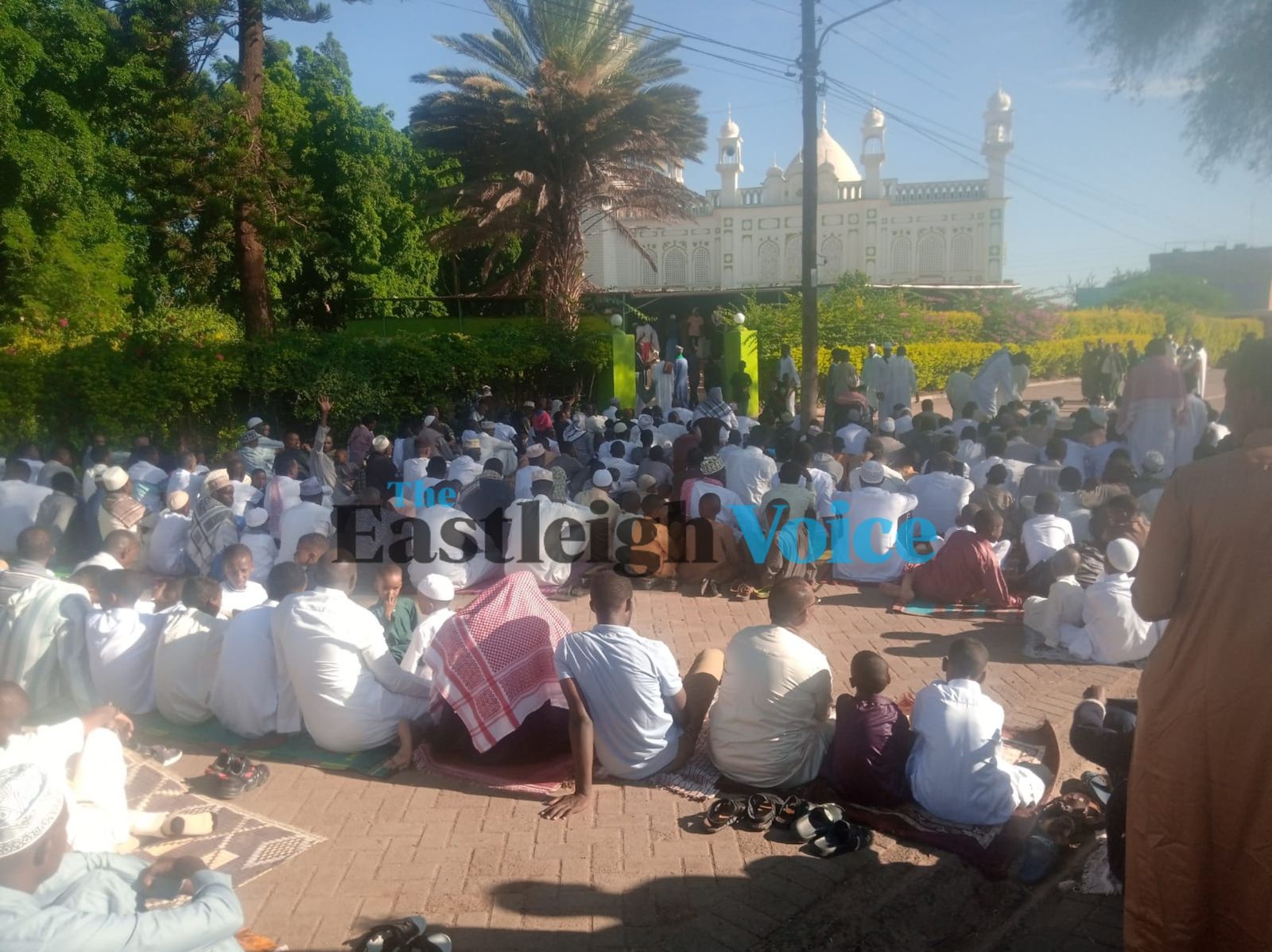 Muslims faithful gather for Eid prayers at Isiolo Islamic Institute Mosque in Tuluroba on April 10, 2024. (Photo: Waweru Wairimu)
Muslims faithful gather for Eid prayers at Isiolo Islamic Institute Mosque in Tuluroba on April 10, 2024. (Photo: Waweru Wairimu)
Compiled by Farhiya Hussein, Issa Hussein, Abdimalik Hajir, Abdirahman Khalif, Waweru Wairimu.
Top Stories Today



